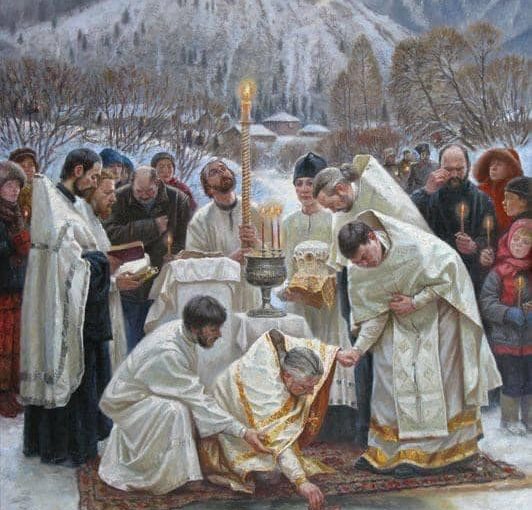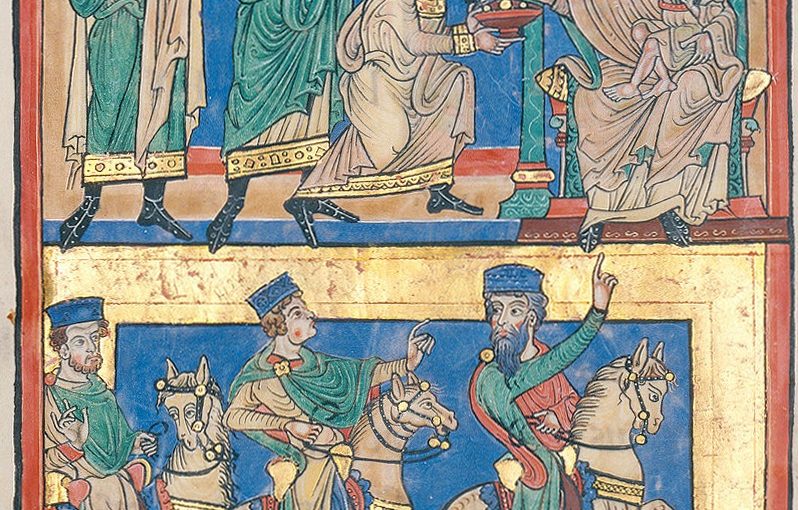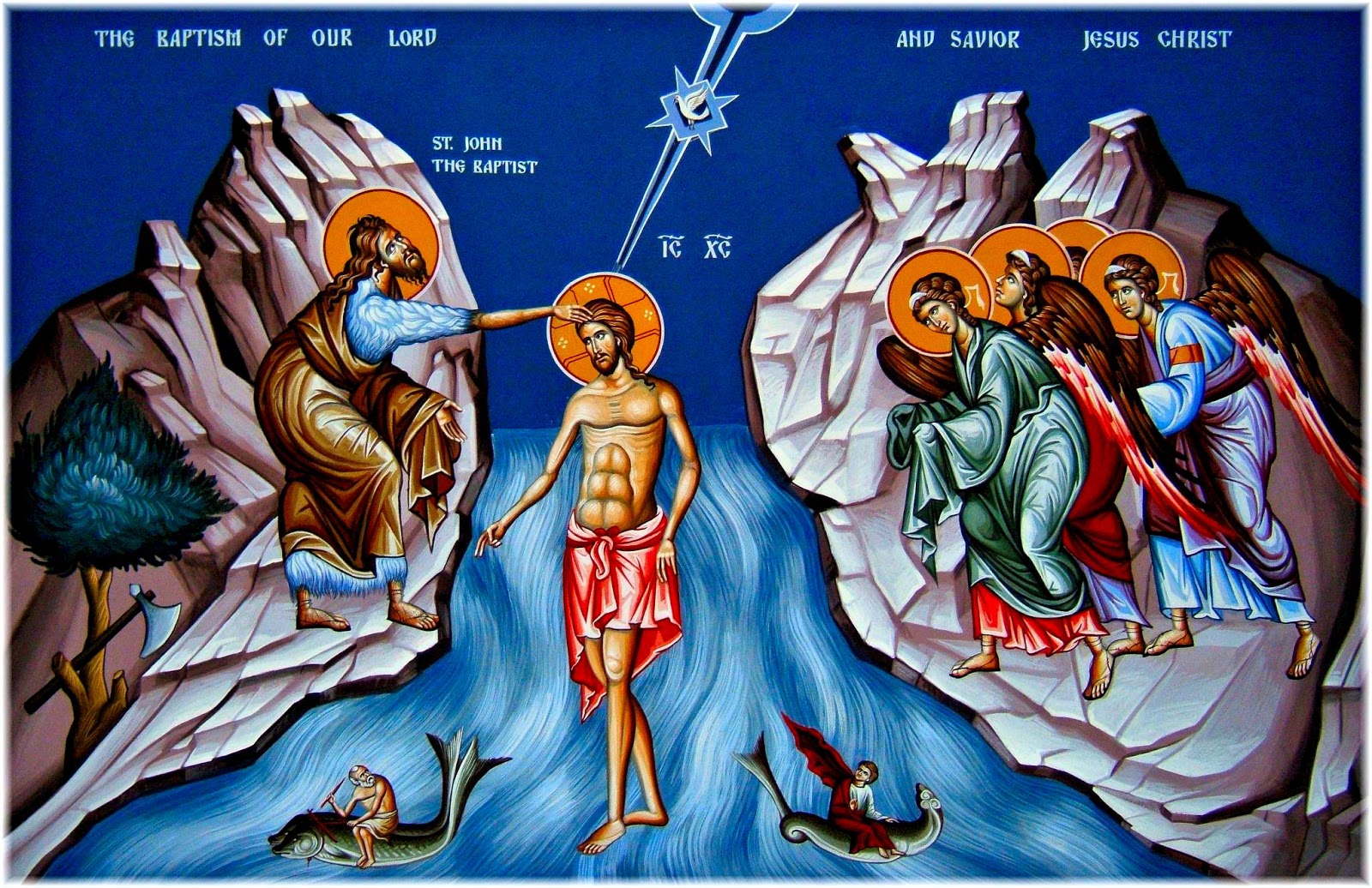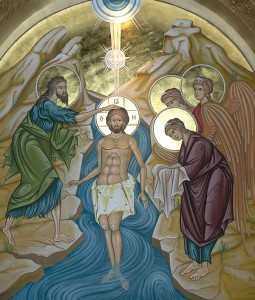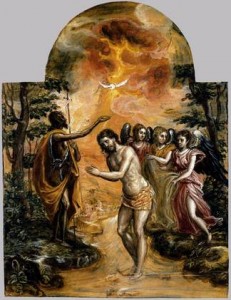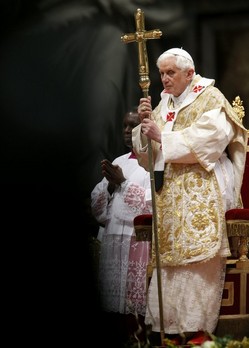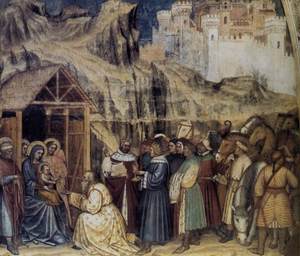We think in the long-game: the Church has a long tradition of carrying on a significant feast day for eight days following. So there is such a thing the Christmas Octave, Easter Octave, the Dormition Octave, etc. We have the Epiphany octave. If we believe in the primacy of liturgical theology, then experience will demonstrate that the memory found in praying the texts bears a heightened awareness and a keen appreciation leading to spiritual generativity in our life. We can’t settle for the bare minimum of liturgical observance.
Troparion — Tone 1
When You, O Lord were baptized in the Jordan / the worship of the Trinity was made manifest / for the voice of the Father bore witness to You / and called You His beloved Son. / And the Spirit, in the form of a dove, / confirmed the truthfulness of His word. / O Christ, our God, You have revealed Yourself / and have enlightened the world, glory to You!
Kontakion — Tone 4
Today You have shown forth to the world, O Lord, / and the light of Your countenance has been marked on us. / Knowing You, we sing Your praises. / You have come and revealed Yourself, / O unapproachable Light.
